Last-Minute NYC Holiday Gift Guide 🎁
We’ve created a holiday gift guide with presents for the intrepid New Yorker that should arrive just in time—


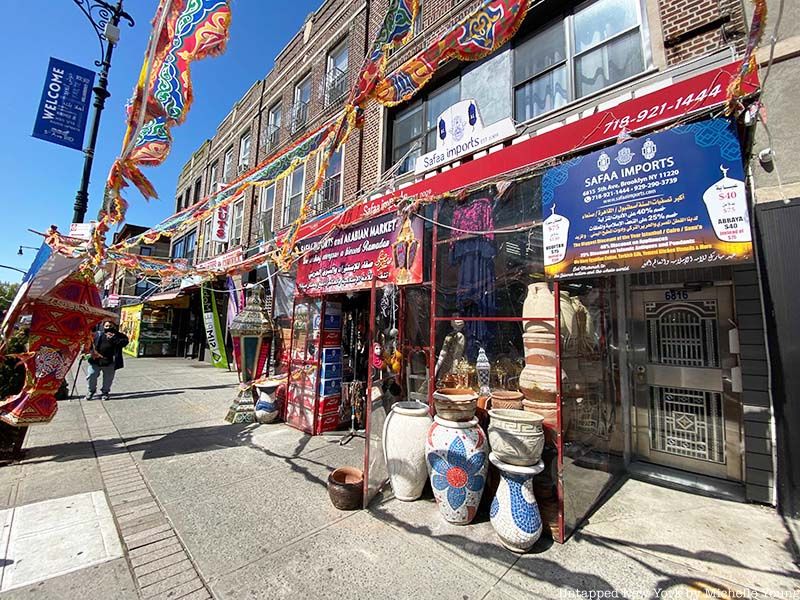
In Bay Ridge, a neighborhood in the southwest corner of Brooklyn, the scent of cinnamon and cardamom wafts out into the streets, which are lined with Yemeni and Palestinian restaurants, shops selling traditional clothing and manufactured goods, and community and religious centers lining every block. That’s because the neighborhood is home to a rapidly growing community of Arab residents who have nicknamed the neighborhood “Little Palestine” and “Little Yemen.” Though some residents have had family in New York City for over a century, including some who trace their lineage to a wave of Syrian migrants who fled the Ottoman Empire in the late 1800s, most started coming in the 1960s and ’70s, with new waves from the Middle East in the last few years escaping conflict and unrest. Bay Ridge has one of the largest Arab-American and Middle Eastern populations of any neighborhood in New York City, though it was not always so ethnically diverse.
Just a few decades ago, the community was heavily populated by Italians, Greeks, and Norwegians, many of whom slowly moved to different neighborhoods. Though, as many Arab immigrants moved into the neighborhood, Bay Ridge quickly became quite segregated; along 5th Avenue, the main stretch of the Arab community, one block contains plenty of signs in Arabic, and the next is filled with bars and Italian restaurants. This has caused some hostility in the neighborhood, with many in the community fighting back against racism and Islamophobia. Cultural centers, including the Arab American Association of New York, have worked to strengthen the community’s economy, assist with social services, and advocate for community interests in local politics.
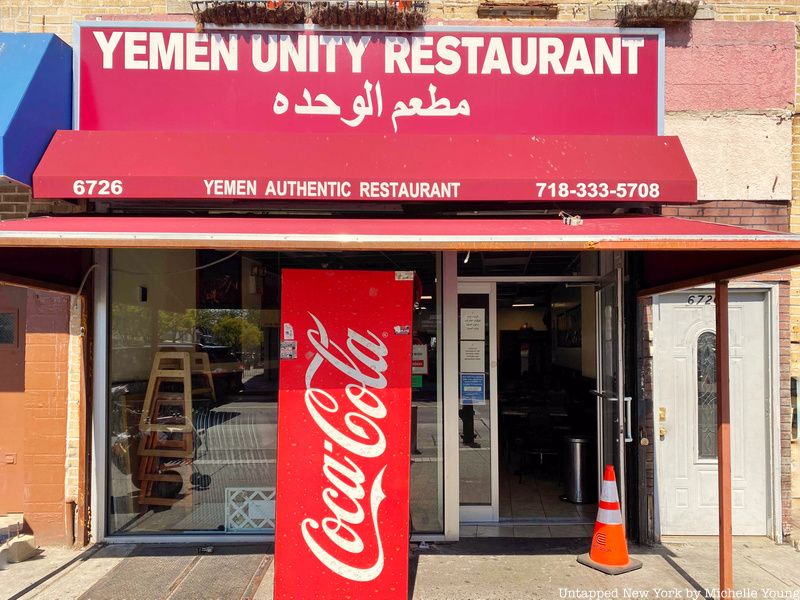
Most of the community’s shops and restaurants are on 4th and 5th Avenues between 67th Street and 75th Street, with a few places on 3rd Avenue. Starting north at 5th Avenue around 67th Street is Yemen Unity Restaurant, a small local Yemeni restaurant a few doors down from the Yemeni American Merchants Association. Across the Street is Paradise Sweets, one of the largest bakeries in the community offering dishes like kunafeh, a spun pastry soaked in a sugar-based syrup and layered with cheese and nuts. The area offers quite a few world cuisines like an Indian place a few doors down, though most restaurants, including this one, are halal.
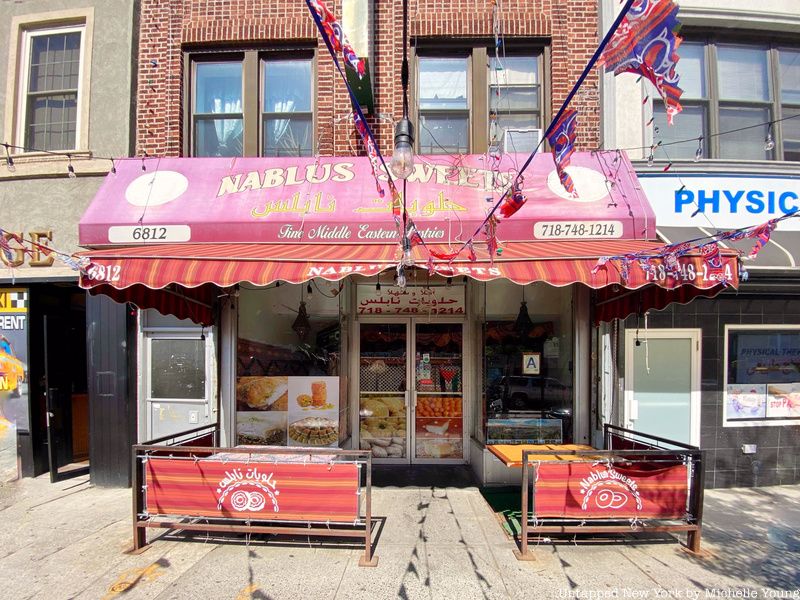
Passing by a few more Arabic signs advertising furniture or medical offices, 68th street and 5th Avenue is the location of another Yemeni spot called Shibam, named after a city in Yemen, located a few doors down from the Islamic Society of Bay Ridge. Across the street is another popular bakery called Nablus Sweets, named after the city in the West Bank, which offers desserts like balloria (a sweet similar to baklava with pistachios or cashews, rose water, and syrup) and ma’moul (date-filled cookies). The block includes a few halal markets and intersects Bay Ridge Avenue, another central roadway with its share of restaurants and shops, including Meena House Cafe and Bahary Fish Market.
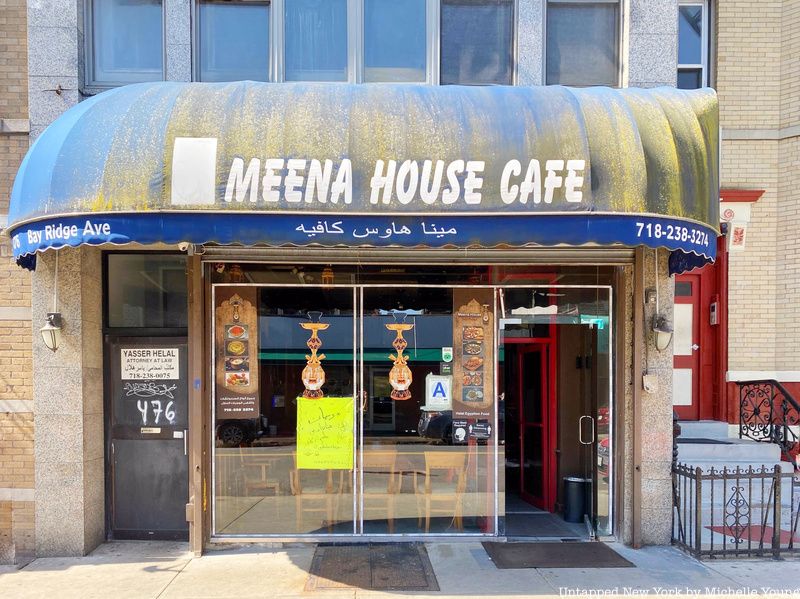
Most storefronts on the next block south are in Arabic, including boutiques and pharmacies, as well as halal restaurant China Pagoda. Al-Aqsa Bakery & Restaurant is a popular Palestinian spot, located beneath the second-floor Beit Jeddo Cafe. Locals also frequent El-Zahra Halal Meat & Restaurant for fresh poultry and lamb, while across the street is an American-inspired eatery called Hemo’s with burgers, Philly cheesesteaks, and fresh juices.
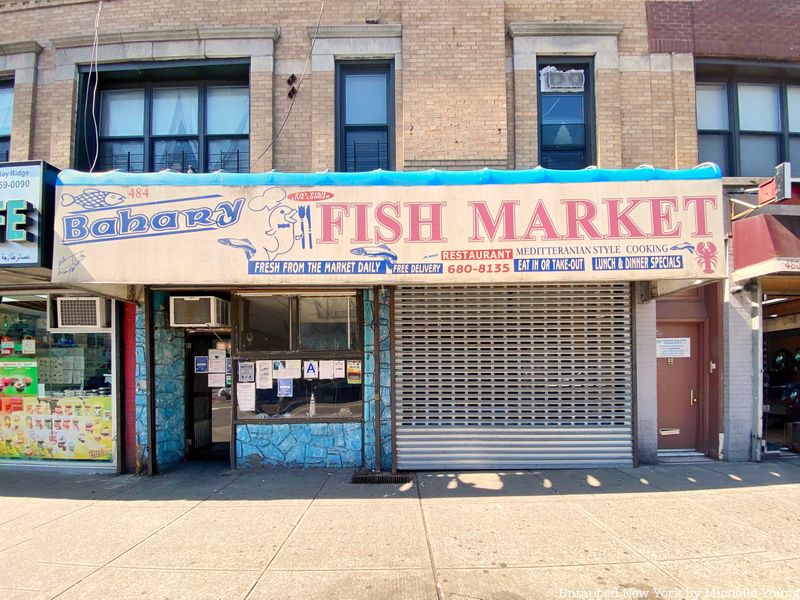
The next block south is a bit quieter, housing the Arab American Association of New York, a few jewelry stores, and Balady food market. Go one block further south and you’ll stumble across a few restaurant gems: Yemen House Restaurant, Alsalam Restaurant, and Hazar Kebab. The block also includes Hookahnuts, known for imported chocolates and nuts, as well as some travel companies.
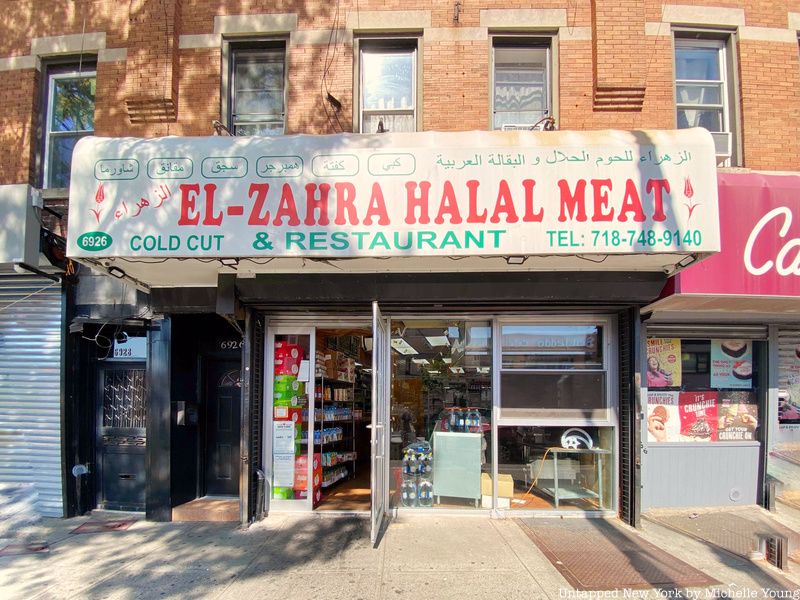
The next few blocks are a bit more diverse, with a few more clothing stores, an Islamic center, and the new location of Yemen Cafe, perhaps the most famous Yemeni restaurant in New York City with a location in Cobble Hill, another (smaller) center of Muslim life in Brooklyn. Though after Bay Ridge Parkway, it becomes harder to find Arab-American businesses along 5th Avenue, though a standout in the high 70s is Shawarma Al-Sham.
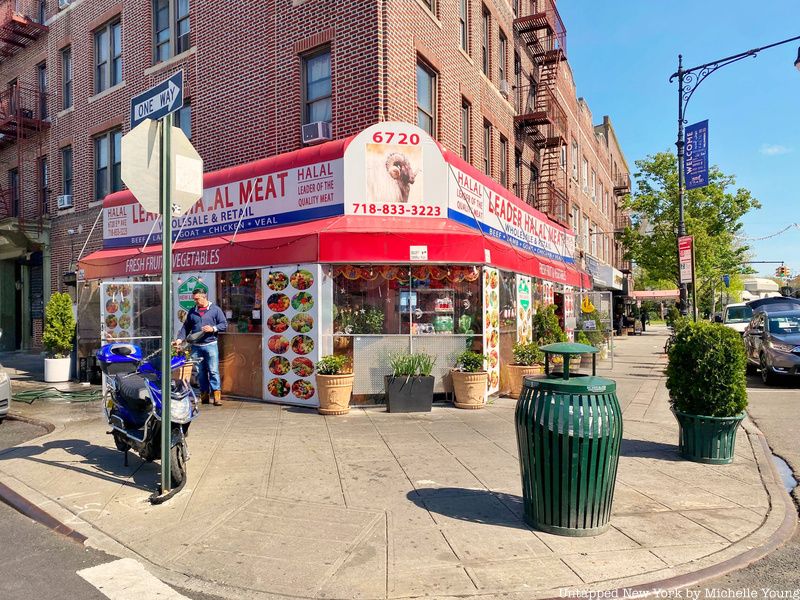
Over on 4th Avenue, Arab businesses are a bit more spread out. Starting at around 68th Street, there are a handful of Yemeni businesses such as Al-Sada Yemeni Restaurant and Your House Cafe. Some pharmacies further south feature Arabic writing, though 4th Avenue quickly becomes residential with few businesses. Third Avenue is quite similar, with a handful of spots including Tanoreen and Lamoza in the high 70s.
There are a handful of Arab-owned restaurants in the 80s, which is much more diverse than the enclave in the 70s, including the very popular Karam Restaurant on 4th Avenue, Ayat on 3rd Avenue, and Le Sajj Restaurant on 5th Avenue. Bay Ridge is certainly one of the top places in New York City to try traditional Middle Eastern fare, shop for specialty items from the Middle East, and buy some jewelry and art rarely found in other neighborhoods.
Next, check out the Top 10 Secrets of Bay Ridge!
Subscribe to our newsletter